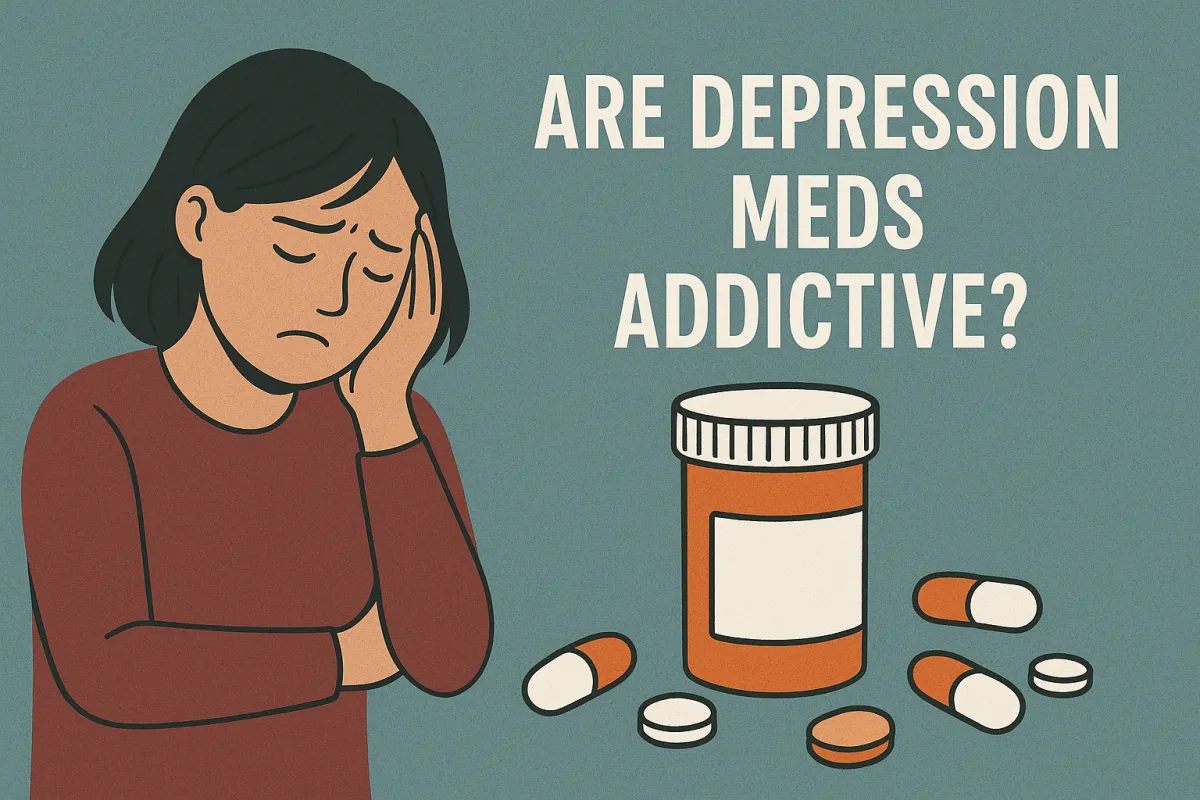
Are Depression Meds Additive? Separating Fact from Fear
No, the most commonly prescribed antidepressants are not considered addictive in the medical sense. Medications like SSRIs (e.g., sertraline, fluoxetine) and SNRIs do not cause the cravings, loss of control, or compulsive drug-seeking behavior that define addiction.
However, it is crucial to understand that your body can become dependent on them. This is a normal physical adaptation, not an addiction. The key difference lies in why and how you use the medication.
The Critical Difference: Dependence vs. Addiction
This is the most important concept to grasp. Doctors use very specific definitions for these terms.
Physical Dependence is a biological state where your body adapts to a drug. Stopping it abruptly can cause withdrawal symptoms. This is a potential side effect of many long-term medications, not just antidepressants, including some blood pressure or heart medications.
Addiction, clinically known as Substance Use Disorder, is a complex disease. It is characterized by compulsive drug use even when it causes serious harm. The core features are intense cravings, a loss of control over use, and continuing the behavior despite negative consequences. Examples include the misuse of alcohol, cocaine, or nicotine.
In short: Dependence is a potential physical side effect. Addiction is a behavioral health disorder driven by compulsion.
What You're Feeling: Discontinuation Syndrome (Not Withdrawal)
When people stop antidepressants abruptly, they can experience uncomfortable symptoms. This is often mistakenly called "withdrawal," but the clinical term is Antidepressant Discontinuation Syndrome.
This happens because your brain has worked to adjust to the presence of the medication to maintain balance. Removing it suddenly throws the system off balance temporarily.
Common symptoms of discontinuation syndrome include:
Dizziness or vertigo
Nausea or flu-like symptoms
Fatigue and lethargy
Anxiety and irritability
Vivid dreams or sleep disturbances
"Brain zaps" (a sensation of a brief electrical shock in the head)
Crucially, these symptoms are not cravings for the drug. They are manageable and almost always temporary, typically lasting 1-2 weeks.
Are Any Depression Meds Addictive?
While modern antidepressants (SSRIs, SNRIs, etc.) are not addictive, it's important to be aware of other types of medications sometimes used in treatment:
Stimulants (like Adderall): These are occasionally prescribed off-label for treatment-resistant depression. Stimulants have a high potential for abuse and addiction and are controlled substances.
Benzodiazepines (like Xanax, Ativan): These are highly addictive and are sometimes prescribed for short-term relief of severe anxiety that can accompany depression. They are not antidepressants themselves and are meant for very limited use under strict medical supervision.
The Safe Way to Start and Stop Antidepressants
The risk of dependence and discontinuation syndrome is why working with your doctor is non-negotiable.
When Starting: Your doctor will begin with a low dose and gradually increase it, allowing your body to adjust smoothly.
When Stopping: You should never stop antidepressants "cold turkey." Your doctor will create a "tapering" schedule, slowly reducing your dose over several weeks or months to minimize or prevent discontinuation symptoms.
Conclusion: Safe When Used as Prescribed
So, are depression meds addictive? The clear answer is no for the vast majority of modern antidepressants. They are non-addictive, non-habit-forming medications that can be life-changing for those with depression.
The physical dependence that can develop is a normal and manageable part of treatment. By working closely with your doctor to start and taper off medication safely, you can effectively manage your mental health without the fear of addiction.
It is essential to never change your medication dosage without consulting your doctor. If you are experiencing troubling side effects or are concerned about your medication, speak directly with your prescriber. They can help you adjust your treatment plan safely and effectively.
